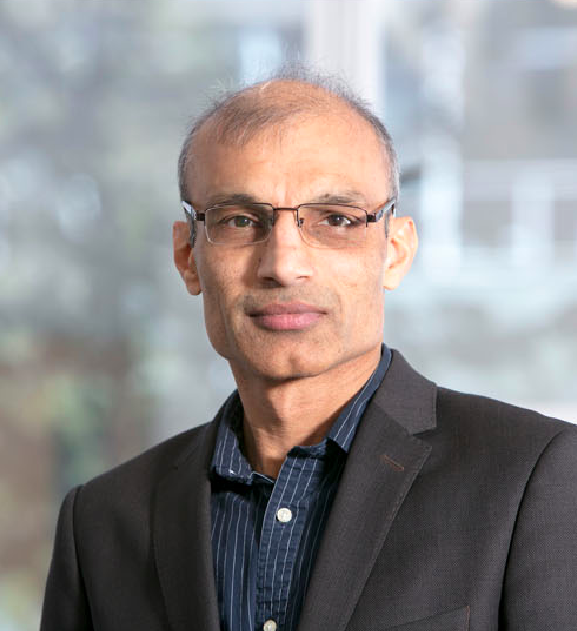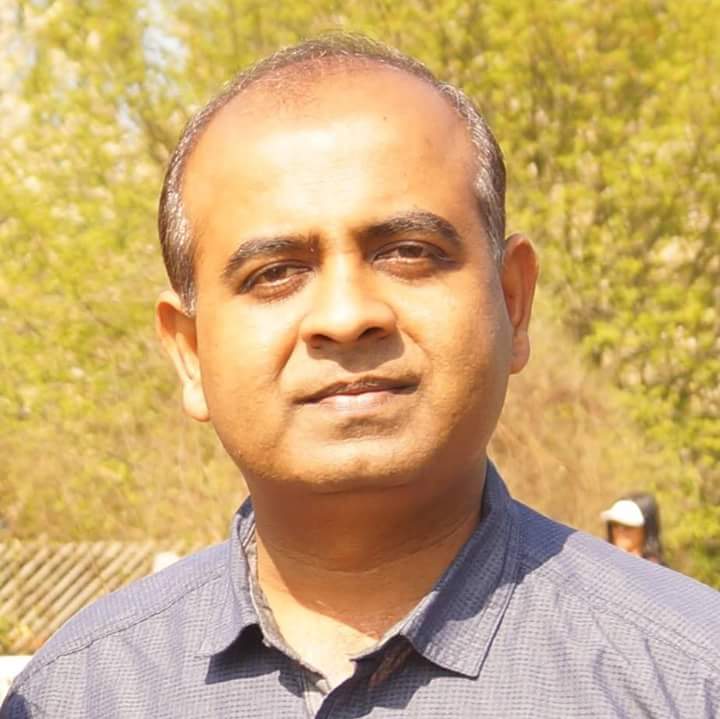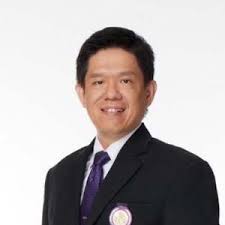
Prof. Jean-Marc Thiriet has been a professor at Université Grenoble Alpes and in the Grenoble Images Parole Signal Automatique (GIPSA-Lab UMR 5216 CNRS/G-INP/UGA) Research Laboratory since September 2005. He received his engineering (master) degree and PhD from Université Henri Poincaré Nancy 1, in 1989 and 1993, respectively. He was associate Professor in Université Henri Poincaré Nancy 1 from 1993 to 2005.
His main research and teaching activities deals with networks, dependability/safety and cyber-security of Cyber-physical systems, he has supervised or co-supervised 17 PhD. He was coordinator of the European Thematic Network Project EIE-Surveyor from 2005 to 2009. He was involved in European Thematic Network projects (i.e. ELLEIEC, SALEIE) and in Euro/US Atlantis projects (ILERT, DESIRE2). He has been involved in the Asean-Factori Key Action 2 project since 2021. He was Director of the Gipsa-lab (Grenoble Images Parole Signal Automatique) Research Centre in Grenoble from 2011 to 2015. He is now in charge of international affairs at IUT1-Univ. Grenoble Alpes and Deputy Head of Ecole Universitaire de Technologie (EUT), in charge of Social and Environmental Responsibility (Sustainable Development).
Title: Industry 4.0/5.0: some challenges, cyber-security
Nowadays, due to the large widespread of usages of the digital environment both for personal and professional aspects, cyber-security has become a key issue. In the field of industry (also generally called nowadays Industry 4.0 or Industry 5.0) or may be more generally in the so-called Cyber-Physical Systems (including autonomous vehicles, IoT, Aeronautics and Space…), some specific issues such as real-time or time-critical and the usage of specific dedicated industrial networks must be taken into accounts, beyond the usual IT issues. The specificity also comes from the fact that the impact due to a cyber-incident (cyber-attack for instance) may reach directly a target in the physical world; due to this link with the physical world, cyber-security is strongly linked with safety or dependability.
The presentation deals with the challenges to manage, focusing the Industry 4.0 issues. After recalling briefly the concepts of Industry 4.0, and 5.0, we will provide some aspects of dependability and safety, giving a focus on the integration of digital and communicating components. Then the challenge is on communications, in an “ubiquitous” network, composed of wired, wireless and mobile networks using IT, industrial and safety protocols, for which the problematics of (cyber-)security is polymorphic. Finally, we will give some answers to some of the cyber-security challenges, and some considerations on the higher education need for adaptation.
Prof. Nauman Aslam is a Network Systems and Security Professor in the Department of Computer and Information Sciences, Northumbria University, UK. Before joining Northumbria University as a Senior Lecturer in 2011, he worked as an Assistant Professor at Dalhousie University, Canada. He received his PhD in Engineering Mathematics from Dalhousie University, Canada in 2008. Professor Aslam is leading the Cyber Security and Network Systems (CyberNets) research group at Northumbria University. His research interests cover diverse but interconnected areas related to communication networks. His current research efforts are focused at addressing problems related to wireless body area networks and IoT, network security, QoS-aware communication in industrial wireless sensor networks and application of Artificial Intelligence (AI) in communication networks. He has led an Erasmus Mundus Action-2 project titled Sustainable Green Economies through Learning, Innovation, Networking and Knowledge Exchange (gLINK), which is funded by the European Union (worth 3.03 million Euros). He has published over 100 papers in peer-reviewed journals and conference. Professor Aslam is a member of IEEE.

Title: Generative AI for Cyber Security – Opportunities and Challenges

Dr. Pramod V. Mahajan is a well-known expert in the field of horticultural engineering. He is currently the lead scientist at the Leibniz Institute for Agricultural Engineering and Bioeconomy in Potsdam, Germany. He has a strong academic background, having received a Ph.D. in Postharvest and Food Engineering, an M.Tech. in Postharvest Engineering, and a B.Tech. in Agricultural Engineering. Over the years, Dr. Mahajan has held a number of respected positions in research and academia in countries like Germany, Denmark, France, and Ireland. His positions have ranged from senior researcher and visiting scientist to research fellow and college lecturer. Dr. Mahajan has been a productive contributor to his field, securing multiple research funds, supervising a large number of postdoctoral, Ph.D., and MSc students, and hosting international conferences. His cognitive accomplishments are further shown by his long list of notable papers in postharvest and agricultural engineering.
Title: Harvesting the Future: Unleashing the Power of ICT and Digital Twins in Agri-Food Supply Chains.
In this keynote presentation, the discussion commences with an exploration of fundamental concepts concerning the dynamic and highly perishable nature of fresh fruits and vegetables post-harvest. This is followed by an introduction to mathematical modelling concepts and their pivotal role in optimizing packaging and storage processes, resulting in extended shelf life and reduced food losses. The focus then shifts to the examination of various sensor technologies applied within the horticultural supply chain, facilitating real-time monitoring and furnishing crucial insights for data-driven decision-making. The concept of digital twins is presented, demonstrating how live-sensor data can be harnessed for real-time predictions and simulations within the horticultural supply chain. Few real-world case studies from the agri-food supply chain will be presented, providing concrete examples of practical applications and highlighting the potential of these concepts. Overall, this presentation represents a comprehensive exploration that spans technology, modelling, and real-world implementations, all with the aim of fostering innovation and sustainability within the agri-food supply chain.
Pongsakorn Yuthagovit is a chair of IEEE Thailand Section. He has worked as a power system planner for 24 years. His responsibilities are to set up sub-transmission and distribution system projects for serving demand growth and improving power system reliability, to perform conceptual design according to PEA planning criteria, to do feasibility studies consisting of technical analysis, power flow studies, short circuit analysis, alternative analysis, economic and financial analysis, and to arrange any procedures for selecting a consultant for technical assistance. As a Planning Committee of PEA Smart Grid Development member, its responsibility is to consider and propose suitable PEA smart grid projects to the committee before going to the PEA Board of Directors for approval. In 2015, he was assigned to be the Pattaya Smart Grid Project manager.

Title: Delivering a greener and more sustainable solution in Information Technology

Patrick Pang Ki Khoon As Chief Technologist (CT) for ASEAN, Worldwide Public Sector at Amazon Web Services (AWS), Patrick serves as a trusted technical advisor to government agency and other public sector customers in South-East Asia, primarily at the Chief Technology Officer (CTO) level. Along with his fellow CTs, who cover other segments and geographies, he works to influence the evolution of AWS’ sales and services roadmaps to meet customers’ strategic needs. Prior to joining AWS, Patrick had served twenty-four years in the Singapore Government, in various capacities. The latest had been as CTO at the National Environment Agency of Singapore, where he drove R&D into waste-to-resource and environmental robotics, as well as various science and technology plans, systems and projects. Earlier, he had served at the National Research Foundation (on Singapore’s inaugural R&D plan and budget for digital economy), the then-Infocomm Development Authority (nationwide fibre broadband and wireless networks), the Ministry of Home Affairs (counter-terror technologies), and then-National Computer Board (network and communication technologies).
Patrick holds Master and Bachelor of Science degrees in Computer Science, and a Bachelor of Arts degree in Science, Technology, and Society, from Stanford University, and a Master of Science in Management degree from the Stanford Graduate School of Business.